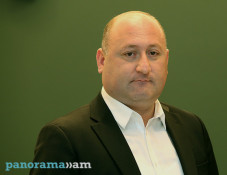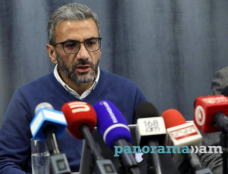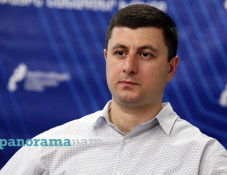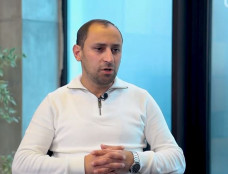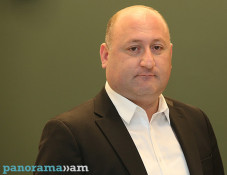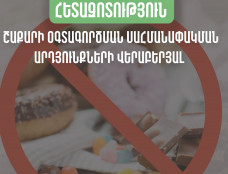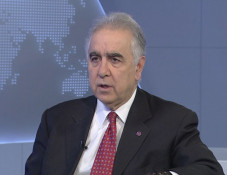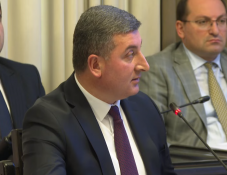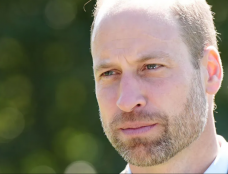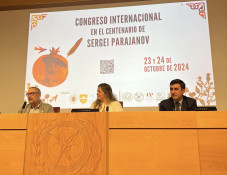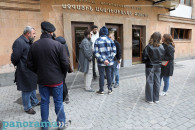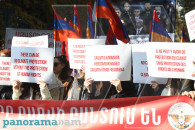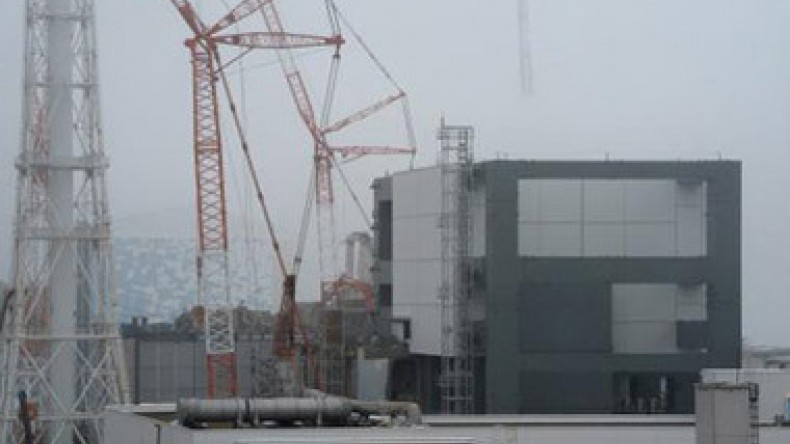
Christmas radioactive present from Fukushima: tons of toxic water leak, contaminate soil
Bad news keeps on coming from crippled Fukushima No. 1 nuclear power station. Apparently it continues to bring harm on the environment, the Voice of Russia said.
Up to 225 tons of radioactive water likely leaked from two more storage tank areas, seeping into the surrounding soil, Tokyo Electric Power Compoany (TEPCO) reported on Christmas Eve.
The two areas are located to the west of the No. 4 reactor building. Water levels have dropped inside walled areas in which storage tanks for radioactive water are located, indicating that up to 225 tons of tainted water may have seeped into the ground, TEPCO officials said.
The utility said this appears to be the largest amount of radioactive rainwater escaping to date from the barriers around tanks holding contaminated water.
Water samples collected Friday contained 20 becquerels of strontium-90 per liter in one of the two areas and 440 becquerels in the other, higher than Tepco’s provisional limit of less than 10 becquerels for water that can be released from storage tank areas.
TEPCO plans to apply nonpermeable resin on the inside of the barriers to block future leaks.
The news came after Tepco reported radioactive water leaks from two other tank areas over the weekend.
The Fukushima plant suffered multiple meltdowns following a 9.0-magnitude earthquake and huge tsunami in March 2011. Hundreds of tanks were built around the six-reactor complex to store massive amounts of contaminated water coming from the three melted reactors, as well as underground water running into reactor and turbine basements. TEPCO has decided to decommission all the reactors at the facility, with the four already put in the decommissioning process.
Fifty-nine young people in Fukushima prefecture have been diagnosed with or are suspected of having thyroid cancer, but experts are divided about whether their illness is caused by nuclear radiation. All of them were younger than 18 at the time of the nuclear meltdown in the area in March 2011. They were identified in tests by the prefectural government, which covered 239,000 people by the end of September.
At a meeting hosted by Japan's Environmental Ministry and the prefectural government on Saturday, most experts were not convinced radiation leaks from the Fukushima nuclear plant could trigger thyroid cancer in children so soon, the Asahi Shimbun reported yesterday.
Among those who voiced alarm was Toshihide Tsuda, a professor of epidemiology at Okayama University. He called upon the government to prepare for a possible increase in cases in the future.
"The rate at which children in Fukushima prefecture have developed thyroid cancer can be called frequent, because it is several times to several tens of times higher," the newspaper quoted him as saying.
He compared the figures in Fukushima with cancer registration statistics throughout Japan from 1975 to 2008 that showed an annual average of five to 11 people in their late teens to early 20s developing cancer for every 1 million people.
Tetsuya Ohira, a professor of epidemiology at Fukushima Medical University, disagreed. It was not scientific to compare the Fukushima tests with cancer registry statistics, he argued.
In November, prefectural officials deemed it unlikely that the increase in suspected and confirmed cases of cancer was linked to radiation exposure.
In the Chernobyl disaster of 1986, it was not until four or five years after the accident that thyroid cancer cases surged.
"It is known that radioactive iodine is linked to thyroid cancer. Through the intake of food, people may absorb and accumulate it inside glands," said Dr Choi Kin, a former president of the Hong Kong Medical Association.
Children might absorb more of it than adults because they were still growing, he said, but it remained to be proven that the radioactive iodine came from the nuclear disaster instead of the normal environment.
Newsfeed
Videos






